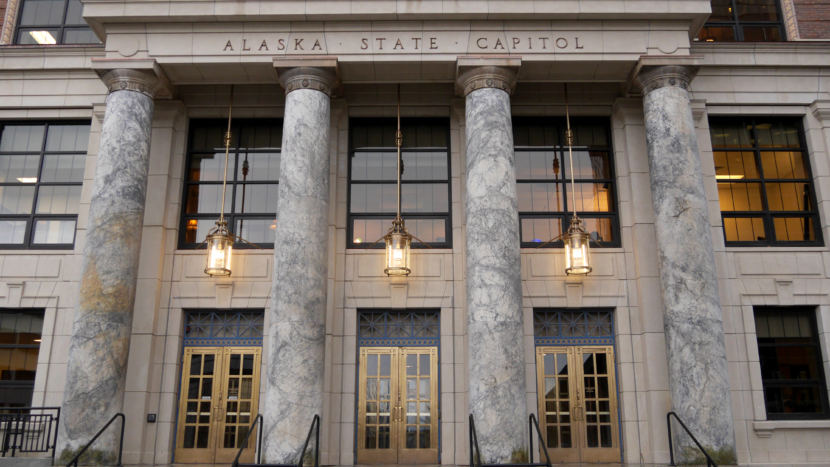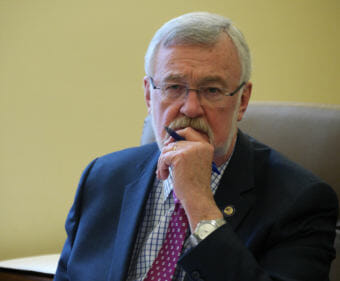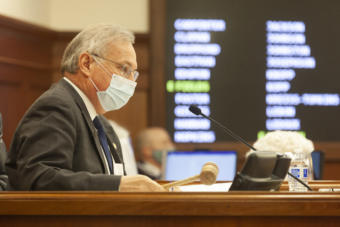
Hearing the news of the violence in the U.S. Capitol reminded Kodiak Republican Sen. Gary Stevens, 79, of an experience he had as an army lieutenant in 1968 when his battalion was called into Washington, D.C., after the assassination of Martin Luther King, Jr.
“Watching TV today reminded me just exactly of those days,” Stevens said. “It took me right back to the concerns we had. You know, people were rioting and causing disturbances and burning buildings. I mean, I remember driving through the city and we had troops at every corner with rifles.”
But Stevens says there is an important contrast.

“Simply, it was violence because of the way Black Americans had been treated, and Martin Luther King was, of course, a big spokesman, and so that death was taken personally by a lot of people. This is different,” he said. “This is sedition, I think, when there’s an attempt to overthrow the government.”
Stevens also was called into the Washington, D.C., area when anti-Vietnam War protesters marched on the Pentagon. He says there are lessons from that time that still apply.
“You don’t need to be violent. You don’t need to burn and destroy things. You can peacefully show your disobedience and cause things to change,” he said.
Stevens says he’s become more patriotic as he’s become older, but questioned what has gone wrong in the country that led to Wednesday’s events.
Stevens chairs the Legislative Council, which is preparing for the upcoming session. He says it’s worth discussing whether security should be added at the Alaska State Capitol. But he says he’s not personally concerned and that the Capitol in Juneau has not had major safety issues in his 20 years as a legislator.
It was quiet in the Capitol in Juneau through early Wednesday afternoon, with only a small, brief pro-Trump protest outside the building, according to a security officer. Larger rallies occurred in other state capitals.

House Speaker Bryce Edgmon, a Dillingham independent, also reacted to the news.
“Well, the whole spectacle was appalling on the one hand. It was bone-chillingly frightening on the other hand,” he said. “And then afterwards, to have a few hours to reflect on it, you know, I’m left to just sort of stand back and think, ‘Boy, I hope this is a wake up call for our country.'”
Republican Gov. Mike Dunleavy commented on the events on social media, writing that “Acts of violence have no place in our great country. Republicans are the party of law & order. These few extremists do not represent our values.”
The governor says he and his wife Rose Dunleavy are praying for the safety of those in the area of the U.S. Capitol.
